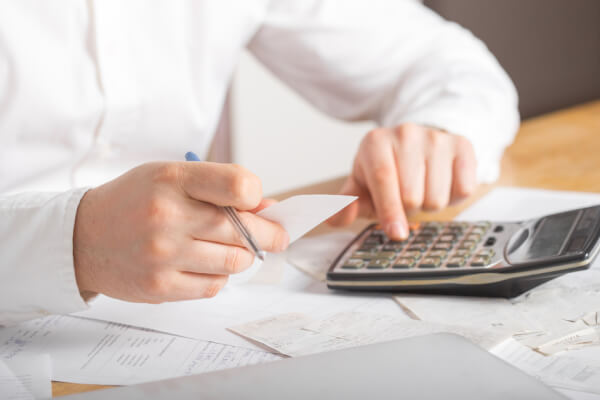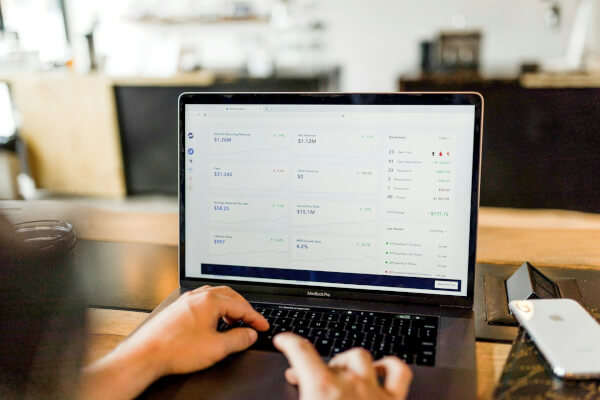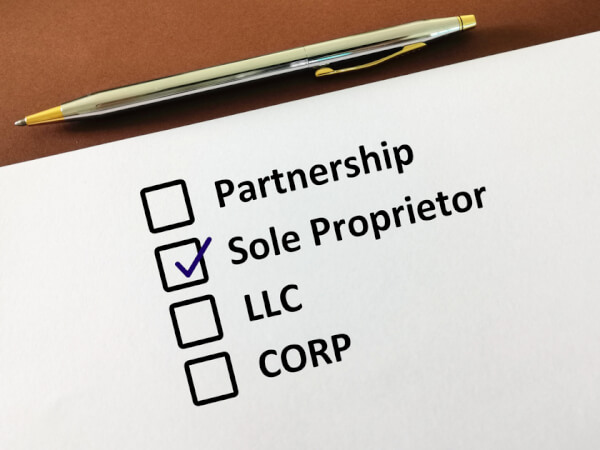Zero-Rated GST in Singapore: Everything Businesses Must Know
Discover what Zero-Rated GST is, how 0% GST can help your Singapore business save on taxes, how to qualify for it and more.

Goods and Services Tax (GST) in Singapore works differently to the rest of the world - rates are generally lower, they’re not subject to variable discounts, and there are a range of clear exemptions. Understanding the GST exemption list will drastically impact your bottom line, ensuring you’re not paying too much (or too little) tax - and that’s where we come in.
This comprehensive guide breaks down Singapore's GST exemption categories, explains the crucial differences between exempt GST, zero-rated GST, and out-of-scope GST, and provides practical insights to help your business stay compliant whilst managing international transactions efficiently.
We’ll also introduce you to the Wise Business Account, an additional financial tool that helps you keep business costs down, particularly when handling overseas transactions.
This guide is for information only - if you’re unsure about any of the tax requirements for your Singapore business, seek professional advice to ensure you're complying with local regulations.
| Table of contents |
|---|
Singapore’s GST is a tax on most goods and services sold in the country. The current rate is 9%, which is much lower than in many other places - in Europe, for example, VAT is often around 20%. This makes Singapore’s GST system more business-friendly.
Some goods and services are exempt from GST by law - like financial services, residential property, and healthcare. But there’s a catch: if your business only sells exempt goods or services, you usually can’t claim back the GST you’ve paid on your own expenses. That means GST becomes a cost you absorb, instead of something you can recover.
For companies working across borders, this difference really matters. It affects cash flow and pricing decisions, and businesses in exempt sectors often need to plan carefully or find other ways to manage the extra costs.
➡️ Find out how to register for GST here.
Singapore's GST exemptions fall into several main categories, each with specific conditions and requirements defined by the Inland Revenue Authority of Singapore (IRAS).
Most financial services in Singapore are exempt from GST. This covers the main activities you’d expect, like bank accounts (current, savings, and deposits), currency exchange, credit and debit card services, issuing and transferring securities, providing loans, and trading in financial products that don’t involve physical goods.
Other exemptions include life insurance policies, the Central Provident Fund (CPF), Islamic finance products, and both unit trusts and business trusts.
That said, the rules are very specific. For example, while regular currency exchange is exempt, swapping money for collectable coins or notes doesn’t qualify.
Residential properties in Singapore are exempt from GST as long as they’re approved for residential use by the Urban Redevelopment Authority (URA). This includes condos, HDB flats, landed houses, townhouses, student hostels, and even workers’ dormitories.
The exemption also covers built-in fixtures like cabinets or air-conditioning units that are part of the property. But movable items - like furniture or loose fittings in a furnished home - are still subject to GST. This makes it important for businesses to clearly separate what’s exempt and what’s taxable when handling property deals.
Singapore’s Investment Precious Metals (IPM) scheme makes certain high-purity gold, silver, and platinum exempt from GST. To qualify, gold must be at least 99.5% pure, silver 99.9%, and platinum 99%, and they must come from refiners approved by the London Bullion Market Association (LBMA) or the London Platinum and Palladium Market (LPPM).
The exemption only applies to investment-grade metals. Things like jewellery, decorative items, or scrap metal don’t qualify. Some specially approved coins listed in the GST Act are also exempt.
Since 1 January 2020, digital payment tokens - like Bitcoin, Ethereum, and Litecoin - have been exempt from GST in Singapore. To qualify, the token must be cryptographically secured, interchangeable (fungible), and represented as a unit.
This exemption covers exchanging crypto for regular money (fiat currency) or swapping between different digital tokens. When these tokens are used as a payment method, GST doesn’t apply either.
In Singapore, public hospitals and polyclinics absorb GST on subsidised treatments - meaning patients don’t pay the tax on top of their bills. Most private healthcare services, however, are still subject to GST, unless covered by certain government subsidy schemes.
For education, public institutions are generally GST-exempt, while private schools may qualify under specific conditions. On the other hand, services like private tuition or coaching classes usually remain taxable.
Charities and non-profits in Singapore follow the same SGD 1 million GST registration threshold as businesses. Pure donations, where the donor doesn’t receive anything in return, are not subject to GST. But if the organisation provides a benefit in exchange - like event tickets or merchandise - GST may apply. To qualify for certain exemptions, these groups must also meet specific conditions tied to their charitable activities.
Understanding the three main GST classifications is important for businesses to stay compliant and plan effectively:
Because businesses can recover input tax on zero-rated supplies, these are generally more cash-flow friendly than exempt supplies.
In Singapore, businesses must register for GST once their taxable turnover exceeds SGD 1 million per year. Only taxable supplies count toward this threshold - exempt supplies are not included.
Businesses that sell only exempt supplies cannot register, since they have no taxable sales to report. Those that sell a mix of taxable and exempt supplies may need to register if their taxable sales alone exceed the threshold.
Even businesses below the threshold can register voluntarily if they make taxable supplies. This can be beneficial for companies with significant input costs, as registration allows them to claim back GST on their purchases, improving cash flow.
Singapore’s current GST rate is 9%, which took effect on 1 January 2024. Over the years, the rate has gradually increased from 3% in 1994 to 4% in 2003, 5% in 2004, 7% in 2007, 8% in 2023, and now 9%.
When the rate changes, transitional rules apply for transactions that span the old and new rates, helping businesses manage the adjustment period. Knowing how the GST rate has evolved can help companies plan for future changes in their long-term strategies.
Invoicing: Exempt supplies should clearly show no GST and include “exempt from GST” on invoices. Mixed supplies must separate taxable and exempt components, especially for input tax claims. Digital invoicing now uses tax category codes to maintain proper GST classification.
Input Tax Recovery: Businesses with both taxable and exempt supplies may apply the De Minimis Rule¹. If exempt supplies average SGD 40,000 or less per month and are ≤5% of total sales, full input tax recovery is allowed. Otherwise, apportionment formulas are used, with annual adjustments to reconcile estimates with actual ratios.
Bad Debt Relief: Relief is available for exempt supplies under certain conditions, such as a 12-month waiting period or evidence of customer insolvency. Claims must be made within five years. If debts are later recovered, repayment to IRAS is required.
Imports and Customs: GST relief schemes help manage cash flow and compliance:
Sector-specific notes:
Can a business supplying only exempt goods or services register for GST?
No, businesses making solely exempt supplies cannot register for GST in Singapore, as they have no taxable supplies to report under the GST system.
How does exemption affect businesses with international clients?
GST exemptions don't affect the ability to serve international clients, but they do impact cash flow since businesses cannot recover input tax on related expenses. This makes efficient international payment solutions, like Wise Business, more important for managing overall costs.
What happens if exempt supplies exceed the De Minimis Rule limits?
When exempt supplies exceed SGD 40,000 monthly average or 5% of total supplies¹, businesses must use an apportionment formula to determine recoverable input tax, reducing the amount that can be claimed.
Singapore’s GST exemptions provide important relief for certain business sectors, but it’s crucial to understand that input tax cannot be claimed on exempt supplies. Knowing the difference between exempt, zero-rated, and out-of-scope supplies helps businesses manage cash flow, pricing, and planning effectively.
Keeping up with IRAS guidelines and maintaining proper documentation ensures compliance while maximising benefits.
For businesses dealing internationally, combining GST knowledge with efficient multi-currency financial management can help you save on unnecessary fees and improve margins.


| 💡Need to pay or get paid in foreign currencies? Wise Business could be a better alternative business account as you can hold, send, receive and exchange 40+ currencies all in one place. You’ll always get the mid-market rate with low, transparent fees. Even better, you can connect Wise Business cards to your account to control team spending in real time and reduce admin. |
|---|
➡️Get started with Wise Business today
Sources:
1 - De Minimis Rule
3 - Import GST Deferment Scheme
Sources checked on 11/09/2025.
*Please see terms of use and product availability for your region or visit Wise fees and pricing for the most up to date pricing and fee information.
This publication is provided for general information purposes and does not constitute legal, tax or other professional advice from Wise Payments Limited or its subsidiaries and its affiliates, and it is not intended as a substitute for obtaining advice from a financial advisor or any other professional.
We make no representations, warranties or guarantees, whether expressed or implied, that the content in the publication is accurate, complete or up to date.

Discover what Zero-Rated GST is, how 0% GST can help your Singapore business save on taxes, how to qualify for it and more.

New to bank reconciliation? Here’s why it is important for your business and a step-by-step guide to ensure accuracy of your financial records.

Compare the top accounting software for small businesses in Singapore. See features, pricing, and how to simplify finances with Wise Business.

Explore whether sole proprietors in Singapore can hire employees or work with independent contractors, as well as business expansion options.

Discover how to calculate your gross and net burn rates, what makes a good burn rate and how to use it to improve your business.

Learn how sole proprietorship tax works in Singapore, from rates to deductions — plus tips to avoid penalties and stay compliant with IRAS.